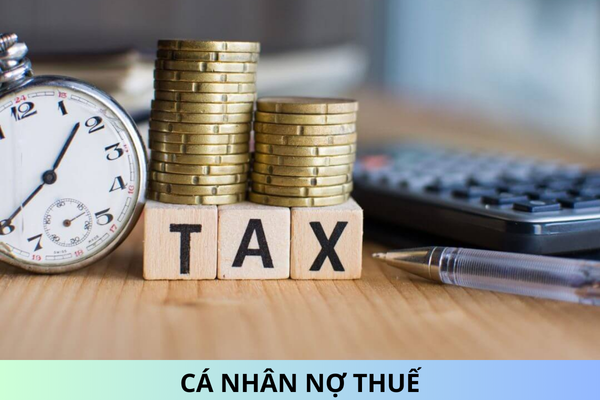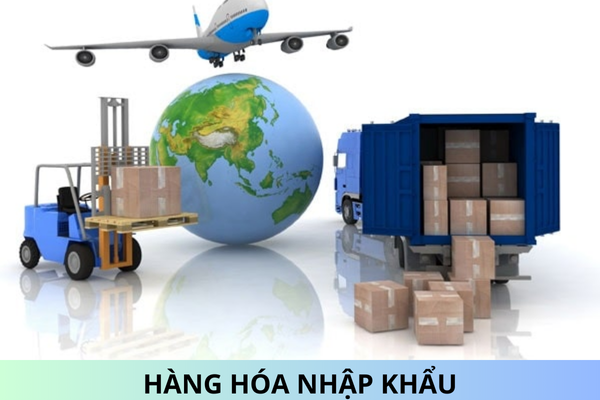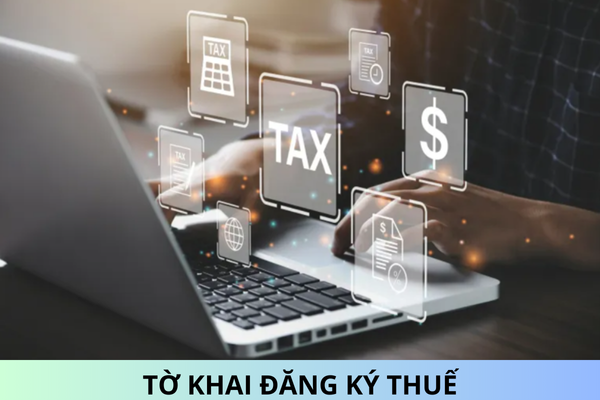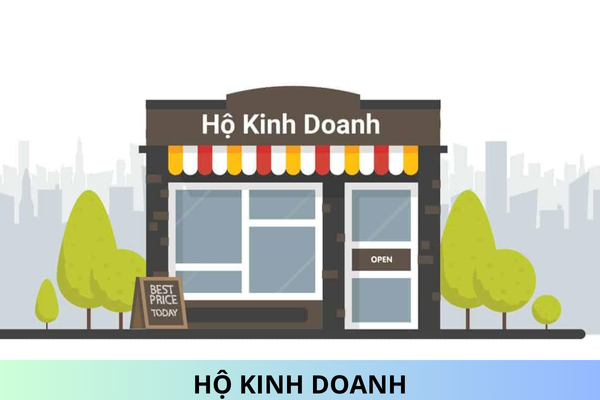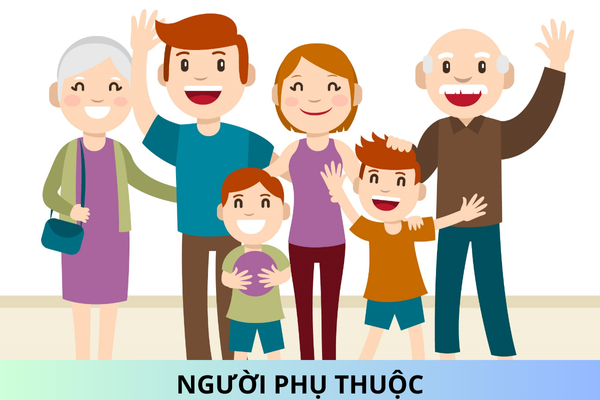If an individual signs a labor contract of more than 3 months but works for 2 months and then resigns, will tax be withheld in Vietnam?
If an individual signs a labor contract of more than 3 months but works for 2 months and then resigns, will tax be withheld in Vietnam? What are incomes from wages and remunerations subject to personal income tax in Vietnam?
My company signed a labor contract of over 3 months with an employee, but now this person has resigned. May I ask, does the company have to make tax withholding? Thank you!
If an individual signs a labor contract of more than 3 months but works for 2 months and then resigns, will tax be withheld in Vietnam?
Pursuant to Point b, Clause 1, Article 25 of Circular 111/2013/TT-BTC amended by Clause 1, Article 20 of Circular 92/2015/TT-BTC, regulations on tax withholding and certificate of tax withheld at source are as follows:
b) Incomes from wages
b.1) The income payer shall deduct tax from incomes of residents that sign labor contracts for 03 months or longer according to the progressive tax table, including the persons that sign such contracts at various places.
b.2) The income payer shall still withhold tax from the incomes earned residents that sign labor contracts for 03 months but resign before such labor contracts expire according to the progressive tax table.
b.3) The income payer shall withhold tax from the incomes earned by the foreigners working in Vietnam based on the duration of work in Vietnam written in the contract or letter of introduction according to the progressive tax table (if the person has worked in Vietnam for at least 183 days in the tax year) or the whole income tax table (if the person has worked in Vietnam for fewer than 183 days in the tax year).
b.4) Insurers have the responsibility to deduct tax on accrual of life insurance premiums paid by the employer on behalf of the employee (except voluntary pension insurance) or other optional insurances with accrual of premiums provided by insurers established and operating under Vietnam’s law. The amount of tax deducted is specified in Clause 2 Article 14 of Circular No. 92/2015/TT-BTC.
Before paying the employee, the employer has the responsibility to deduct tax from the premiums of life insurance or other optional insurances with accrual of insurance bought by the income payer for the employee from insurers not established and operating under Vietnam’s law but permitted to sell insurance in Vietnam. The amount of tax deducted is specified in Clause 2 Article 14 of Circular No. 92/2015/TT-BTC.
b.5) The determination of tax withheld from incomes from wages earned by residents is guided in Article 7 of this Circular; the determination of tax withheld from incomes from wages earned by non-residents is guided in Article 18 of this Circular.
Thus, if an employee signs a labor contract of 3 months or more in Vietnam, even if he/she resigns work before the end of the labor contract, your company will still withhold tax according to the progressive tax table in Vietnam.

If an individual signs a labor contract of more than 3 months but works for 2 months and then resigns, will tax be withheld in Vietnam? (Image from the Internet)
What are incomes from wages and remunerations subject to personal income tax in Vietnam?
Pursuant to Clause 2, Article 2 of Circular 111/2013/TT-BTC amended by Clause 1, Article 11 of Circular 92/2015/TT-BTC stipulates taxable incomes as follows:
2. Incomes from wages and remunerations.
Incomes from wages and remunerations (hereinafter referred to as wages) are incomes paid to employees from employers, including:
a) Wages, remunerations, and the other amounts paid as wages or remunerations in cash or not in cash.
b) Allowances and benefits, except for:
b.1) Monthly benefits, lump-sum benefits and allowances according to regulations of law on incentives for contributors.
b.2) Monthly allowances and lump-sump allowances for the persons that participate in the resistance movements, national defense, fulfillment of international tasks, and discharged volunteers.
b.3) Benefits for national defense and security; subsidies for the armed forces.
b.4) Benefits for dangerous or harmful works.
b.5) Benefits for employees in disadvantaged areas.
b.6) Irregular allowances for difficulties, occupational accident benefits, occupational illness benefits, lump-sum allowances for childbirth or adoption, maternity leave benefits, post-maternity recovery benefits, benefits for reduction in work ability, lump-sum pension, monthly widow’s pension, severance pay, redundancy pay, unemployment benefits, and other benefits according to the Labor Code and the Law on Social insurance.
b.7) Benefits for beneficiaries of social security.
b.8) Benefits for senior officers.
b.9) Lump-sum benefits for the persons reassigned to the areas facing extreme economic and social difficulties, lump-sum supports for officers working for sovereignty over sea and islands as prescribed by law. Lump-sum moving allowances for foreigners that move and reside in Vietnam and Vietnamese people that go to work abroad, and Vietnamese people that have long-term residence overseas then go back to work in Vietnam.
b.10) Benefits for medical employees in villages.
b.11) Occupational benefits.
The allowances and benefits that are not included in taxable incomes as guided in Point b Clause 2 of this Article must be defined by competent authorities.
If the documents on the levels of allowances and benefits are applicable to the public sector, other economic sectors and businesses shall make calculate allowances and benefits based on such documents.
If the actual benefits and allowances received are in excess of the levels stated above, the excess shall be included in taxable incomes.
Lump-sum moving allowances for foreigners that reside in Vietnam and Vietnamese people working overseas shall be deducted in accordance with the labor contract or collective bargaining agreement.
c) Remunerations in the forms of agent commission, brokerage commission, payments for participation in science and technology researches, payments for participation in projects and schemes, royalties according to regulations of law on royalties, payments for teaching, payments for participation in artistic performance, sports, payments for advertising, payments for other services, and other remunerations.
d) Payments for participation in business associations, Boards of Directors, Control Boards, project management boards, management councils, professional associations, and other organizations.
dd) Other benefits in cash or not in cash apart from wages paid to the taxpayer by the employer in any shape or form:
dd.1) Payments for housing, electricity, water supply and associated services (if any), not including: benefits in terms of housing, electricity, water supply, and associated services (if any) of housing built by the employer for serving employees in industrial parks free of charge; housing built by the employer in disadvantaged areas and extremely disadvantaged areas that is provided free of charge for employees working therein.
If the person stays at the workplace, the taxable income depends on the house rent or depreciation expense, payments for electricity, water supply, and other services according to the ratio of area that person uses to the total area of the workplace.
The house rent, payment for electricity and water supply, and payment for associated services (if any) paid by the employer on behalf of the employee shall be included in taxable income according to the actual amount paid on behalf of employees. Nevertheless, the amount must not exceed 15% of the total taxable income (excluding house rent, payment for electricity, water supply, and associated services (if any)) earned at the workplace regardless of income payer.
dd.2) The life insurance premiums, premiums of other optional insurance with accrual of premiums, voluntary pension insurance premiums or contributions to the voluntary pension fund paid on the worker’s behalf.
If the employer buys optional insurance without accrual of premiums for employees (including insurance of insurers that are not established under Vietnam’s law but permitted to sell insurance in Vietnam), such premiums shall not be included in taxable income of employees. Optional insurance without accrual of premiums are insurance products such as: health insurance, death insurance (except for death insurance with refund policy), etc. from which policyholders do not receive the accrued amount of premiums apart from the insurance payout or indemnities paid by the insurer under insurance policies.
dd.3) Membership fees and other expenditure on services serving individuals such as: healthcare, entertainments, sports, recreation. To be specific:
dd.3.1) Membership fees (such as membership card of golf course, tennis course, cultural, artistic, sports clubs, etc.) - if the card specifies the user or group of users. If the card is shared without specific users, the fees are not included in taxable incomes.
dd.3.2) Expenditures on other services individuals such as: healthcare, entertainments, sports, recreation, etc. - if the names of the recipients are specified. If the recipient is the collective of employees, not any specific person, it is not included in taxable income.
dd.4) Flat expenditures on stationery, business trips, phone calls, costumes, etc. that are in excess of the limits prescribed by the State. Flat expenditures are not included in taxable income in the cases below:
dd.4.1) For the officials and employees in public service agencies, communist party’s agencies, associations: the flat expenditure shall apply guiding documents promulgated by the Ministry of Finance.
dd.4.2) For the employees working in businesses and representative offices: the flat expenditure shall conform to the income that incurs corporate income tax and guiding documents of the Law on Enterprise income tax.
dd.4.3. For the employees in international organizations and representative offices of foreign organizations: the flat expenditure shall comply with regulations of such international organizations and representative offices of foreign organizations.
dd.5) The expenditure on shuttling employees is not included in taxable incomes of employees according to rules and regulations of the employer.
dd.6) The payments for refresher courses for employees, which suit their professions or accords with plans of the employer, shall not be included in the incomes earned by employees.
dd.7) Other benefits.
Other paid to employees by the employers such as: payments during leave period or public holidays; payment for counseling, tax statement services for a particular person or group of people; payment for domestic servants such as driver, cook, and other domestic servants that work under contracts, etc.
e) Rewards in cash or not in cash in any shape or form, including rewards in the form of securities, except for:
e.1) Prize money associated with the titles awarded by the State, including the prize money associated with honorary titles as prescribed by law:
e.1.1) Prize money associated with honorary titles awarded by Ministries, central and provincial agencies and associations, excellent employee titles.
e.1.2) Prize money associated with the awards.
e.1.3) Prize money associated with the titles awarded by the State.
e.1.4) Prize money associated with the awards presented by associations and organizations belonging to central and local political organizations, socio-political organizations, social organizations, social organizations that conforms with there charters and the Law on Emulation and commendation.
e.1.5) Prize money associated with the Ho Chi Minh Prize and National Prize.
e.1.6) Prize money associated with medals or badges.
e.1.7) Prize money associated with certificates of merit
The powers to decide the commendation and prize money associated with the titles and awards above must be conformable with the Law on Emulation and commendation.
e.2) Prize money associated with national prizes and international prizes recognized by Vietnam.
e.3) Rewards for technical innovations and inventions recognized by competent authorities.
e.4) Rewards for reporting violations of law to competent authorities.
g) The incomes below are not included in taxable incomes:
g.1) Supports provided by the employer for medical examination and treatment of fatal diseases suffered by employees and their families.
g.1.1) Family of the employee in this case include: children, legitimate adopted children, illegitimate children, stepchildren, spouse, parents, parents-in-law; stepparents, legitimate adoptive parents.
g.1.2) The support that is not included in taxable income is the actual paid amount according to hospital bills, but must not exceed the hospital fee paid by the employee and his or her family after deducted the amount paid by the insurer.
g.1.3) The employer that provide supports shall keep the copies of the hospital bills that are certified by the employer (if the employee and his or her family pay for the remaining amount after the insurer directly pay the medical facility), the copies of the health insurance payment certified by the employer (if the employee and his or her family pays the entire hospital fee and then receive insurance money from the insurer) together with the papers proving the provision of supports for employees and their families who suffer from fatal diseases.
g.2) The amount received according to regulations on using vehicles of state agencies, public service agencies, communist party’s organizations, and associations.
g.3) The amount received according to the regulations on public housing.
g.4) Other payments received, apart from wages, for participation in consultation, appraisal, and inspection of legislative documents, Resolutions, political reports, inspectorates, serving votes, citizens; for costumes and other tasks directly serving the operation of the Office of the National Assembly, the Ethnic Communities Council, committees of the National Assembly, the delegations of the National Assembly, the Central Office, the departments of the Communist Party, City/Province Committees and their departments.
g.5) Payment for mid-shift meals, lunch of employees provided by employers that provide mid-shift meals, lunch for their employees in the form of cooking, buying catering services, giving luncheon vouchers.
If the employer pays cash for their employees’ meals instead of providing mid-shift meals or lunch, such money is not included in the taxable income if it is conformable with the guidance of the Ministry of Labor, War Invalids and Social Affairs. If the payment is higher than the limit imposed by the Ministry of Labor, War Invalids and Social Affairs, the excess shall be included in taxable incomes.
The expenditures of state-owned enterprises, public service agencies, communist party’s agencies, associations shall not exceed the limits imposed by the Ministry of Labor, War Invalids and Social Affairs. For non-public enterprises and organizations, the expenditures shall be decided by the head and the union president, and shall not exceed the limits imposed on state-owned enterprises.
g.6) The payment for round-trip air tickets made by the employer for foreign employees in Vietnam or Vietnamese employees overseas to go home once a year.
The basis for determining the payment for air tickets is the labor contracts and the prices of air tickets from Vietnam to the other country and vice versa.
g.7) The tuition fees for children of foreign employees in Vietnam to study in Vietnam, for children of Vietnamese employees overseas to study overseas from preschool to high school, which is paid by the employer on their behalf.
g.8) The amounts received from sponsors are not included in the taxable income if the sponsorship beneficiary is a member of the sponsoring organization; the sponsorship is funded by government budget or managed in accordance with regulations of the State; from composting literary and artistic works, scientific research, accomplishment of political objectives of the State, or other activities that conforms with their charters.
g.9) The payments paid by the employer for dispatching, reassigning foreign employees in Vietnam in accordance with labor contracts and international work schedules of some industries such as petroleum, mineral extraction.
The basis of determination is the labor contract and the payments for air tickets from Vietnam to the home country of the foreign employee and vice versa.
Example 1: Mr. X is a foreigner dispatched by contractor Y to an oil rig on the continental shelf of Vietnam. According to the labor contract, the work cycle of Mr. X on this oil rig is 28 consecutive working days and 28 days off. The payments made by contractor Y for the air tickets for Mr. X to fly from his country to Vietnam and vice versa for every time of changing shift, the helicopter that take Mr. X from the mainland to the oil rig and vice verse, the residence expense while Mr. X is waiting for the helicopter shall net be included in the taxable income of Mr. X.
g.10) The amounts given by the income payer for employees’ family affairs shall comply with rules and regulations of the income payer and the guidance on determination of income subject to corporate income tax of instructional documents of the Law on Corporate income tax
Best regards!

